Sounds of Silence: An interview with Gen Silent’s Stu Maddux
Gen Silent filmmaker Stu Maddux on the perils of aging, the importance of support networks, and the threat posed by the potential loss of LGBT history

“Give it 10 years and we will havelost the greatest chapter in our LGBT history, which was not Stonewall, it was everything that led up to that day,” says filmmaker Stu Maddux. “And we’ll never get it back. Because it’s already an archaeological dig. It’s already hidden. People don’t want to talk about it, they don’t realize it’s important to share.”
For Maddux, the race to preserve that history faces a looming deadline. He has attempted to do just that in Gen Silent, his 2011 documentary, which recently aired on LGBT channel Logo, and in Reel in the Closet, his 2015 documentary that incorporates home movie and video footage from the lives of LGBT people in order to preserve their experiences.
In Gen Silent, Maddux chronicles the lives of six LGBT elders struggling with the aging process, complete with health complications, loneliness, frailty, and their struggle to establish networks of support. The film, which has been screened in various cities throughout the United States and in 80 different countries since its initial release, attempts to give a voice to its subjects and to the elderly LGBT community writ large. Maddux laments the loss of such voices, noting that many LGBT elders have “re-closeted” for fear of being mistreated or discriminated against, whether by caregivers, home health workers, retirement home staff, or even other residents. And that robs the younger members of the LGBT community of the wisdom and experiences that could otherwise be shared by their elders.
“They’re going silent again,” he says of the LGBT elders. “You can say it’s just an LGBT issue, but really, anytime you’ve ever felt like you can’t express how you feel about something, because somebody else has taken over the conversation or made you feel uncomfortable, you’re feeling exactly what these LGBT seniors feel every day.
“It’s like, ‘Okay, I can stand up and say something, or I can just shut up,'” Maddux adds. “And we’ve all been in a situation where it’s easier to shut up, like, ‘I don’t want to deal with it.’ And when you really need help, you just shut up all the time. As long as there’s one bully or one person who can be bothered, it’s going to wreck it for everybody.”
Maddux also says that caregivers need to exercise compassion and remember that their LGBT clients are human beings deserving of respect, even if they may personally oppose homosexuality or may not understand it.
“I really think that this movement toward moral objection is not compatible with being moral, as a person,” he says. “You can’t pick and choose who you care for.”
Above all, Maddux stresses the importance of support networks as people tackle the aging process. Particularly for LGBT people who are single, or those who do not have children or extended family to help take care of them, growing old can be a lonely, isolating experience. As a result, it often falls to other members of the LGBT community, volunteers, nonprofit organizations, or government to step in and provide programs, counseling or support to this vulnerable population.
“I think what would be really cool would be if we had Gay-Straight Alliances in retirement communities, just like we do in high school,” Maddux says. “Where you can go in, if you’re looking for a place to stay. And there would be people to say, ‘Come on in, it’s cool here. You know, we watch Golden Girls on Thursday afternoons in the community room, and we have the annual dance over here. And it’s safe and fun, and we’re here for you. We’ve got your back.'”
METRO WEEKLY: Tell me about your childhood.
STU MADDUX: I was born in Montgomery, Alabama, and we moved around a lot. I was born in 1965 — I think it was the summer of the Selma marches. My mother was carrying me, but we have this cool family story of how she and my grandmother would drive up halfway to Selma and watch the marches. And she was carrying me when she did this, so I say I was at the Selma march.
MW: Did you have any siblings?
MADDUX: I have one younger brother. And so we looked like the typical nuclear family. Middle-class, white, Wonder Bread family.
MW: When was the first time you became aware of the LGBT community?
MADDUX: My family took us to a restaurant that was in a college part of town. This was in Minneapolis. And I remember that there were some funny guys, giggling as they went out the door, and kind of patting each other and being extremely affectionate. And I remember my mother kind of sighing, and I didn’t really know what it was about.
MW: Who was the first openly gay person you met?
MADDUX: The first openly gay person I met was a guy in college who I ended up having my first relationship with.
MW: When did you first start to think that you were gay?
MADDUX: When I was in my teens, everybody had a poster of Farrah Fawcett in their room. And it wouldn’t work for me. Every time I would look at Farrah, I wouldn’t get the same feeling that everybody else did about Farrah Fawcett. It was depressing every time I would look at this poster. I’m sure you’ve seen it before, it was iconic, a ’70s bathing suit poster that you would get at a Spencer Gifts or something like that. And I just remember realizing that I’m different and I’ve got a big problem, and I don’t know what I’m going to do about it. I remember saying, “Farrah, help me with this.” You know, “If I don’t feel attracted to you, then I’m not going to feel attracted to anybody.”
MW: When did you finally come out?
MADDUX: I was in college and I was 19, I think. Maybe I had just turned 20. There was a guy in the class that kept making eye contact with me. I had kind of gone through this angst about it for six years, and finally I decided to either put up or shut up. So I pursued him, and we had a little relationship for a semester. It was a nice start.

MW: How did you first become involved in film?
MADDUX: Well, I studied journalism at the University of Missouri. I wanted to go to film school, but it was a combination of not having the money and not having the grades to get into USC or something. I wanted to go into a prestigious program. I was living in Missouri at the time, in Kansas City, and the school of journalism had a good program for television. It was broadcast journalism for television. I became a television reporter for about 10 years, and an anchor. Then I was working in a state that had a lot of documentary work going on, and transitioned into working for networks, making documentaries. About 10 years ago, I got tired of working for everybody else, and got to a place where I could make my own documentaries.
MW: What was your first documentary?
MADDUX: My first independent documentary was called Bob and Jack’s 52-Year Adventure. It was about two men that had been together for 52 years. They met in the military, back in 1949 or 1950, in the Cold War, in post-World War II Germany — one was the other’s commanding officer. They came out to the troops in their unit. They were still together as of recently. At that point, I wasn’t seeing a lot of examples of men having long-term relationships with each other. It wasn’t that they weren’t out there, it’s just that you weren’t seeing it. It was an internalized feeling that was put on you by external forces, like people who were homophobic, that gay men are not capable of having long-lasting relationships. I was at a point in my life where I was beginning to wonder, because I had relationships but nothing really long-lasting.

MW: Did you always want to deal with LGBT subject matter?
MADDUX: No, I didn’t. I wanted to make documentaries that everybody would see, and would make me rich and famous, and have a great career in Hollywood. As I was going down that path, working for networks and things doing that, I lost my passion a little bit for the projects that networks wanted to do, and the reasons they wanted to do them. So I reached a point where I wanted to do a reset and find things that were important to me.
If you’re a filmmaker, that’s a good way to make movies. And maybe not commercially successful movies, but movies that have passion. Find the things that are really important to you, that are close to you, that you have a personal and emotional connection to you.
MW: What prompted you to make Gen Silent?
MADDUX: Well, I was looking for mentors, for people with life experience. I was wondering why there are some [LGBT elders] out there, but not in the same numbers as our straight grandparents, like really infinitesimally small, in terms of their visibility or availability — or you can’t find them as a younger person, as you can your straight grandparents. And I started looking into why that was, and I learned that there was this phenomenon going on of people going silent again.
It really bothered me, for selfish reasons, really, because the oppression they went through and what they have to go through now robs me and everyone else who comes after them of this voice of experience. And I owe it to myself and to them to do something about it, in a way that I know how, which is filmmaking.
MW: Do you think younger people fully appreciate the breadth of experience that they could rely on if they knew or interacted with older LGBT folks, or do you think that’s lost on the young?
MADDUX: I think it’s lost on everybody who doesn’t have a chance to sit down with somebody who’s had that life experience. It’s like sitting down with a war veteran, or somebody who was a famous painter, or something like that. It’s an amazing conversation. It’s not that people are disrespectful, or just don’t know their history. I get really angry when I hear those things, because there’s no way for anybody to know their history. You can read a book or you can watch a movie, but that’s not the same as sitting down with somebody who’s lived it and getting to ask them, “What was it like?” And, actually, getting them to ask you, “What’s it like now?”
We’ve actually done some screenings where we’ve been able to get younger people to share a meal with older people, and facilitate a little bit of a conversation back and forth. And it’s amazing. What the older people learn from younger people is just as valuable as vice versa. It’s a two-way street.

MW: How did you organize those?
MADDUX: We did this really interesting thing with Stonewall Columbus, the Pride center in Columbus. We said, “Let’s have a meal. We’re going to break up into groups. And I’m going to ask you to learn something about the other person and share it on a group level later on.” It’s simple. Really simple.
One of the conversations I heard at another screening was a group of lesbians having a conversation with a trans man who was undocumented. The way that the knowledge and experience was flowing back and forth, like he didn’t understand why it was important for them to identify with how we got where we were today, and how we got power. And they didn’t understand the true gift that they have in citizenship, because until you talk to somebody who’s undocumented, particularly a trans person, I would think, you don’t realize how tough it can be.
MW: When you were making Gen Silent, were there any moments where you had to take a breath and separate yourself from your work? At the screening in D.C., many audience members appeared to be affected by the scenes of KrysAnne’s last video diary, where she’s dying and literally laboring with each breath, or seeing Alexandre in the nursing home, where he can barely hold onto his food to eat.
MADDUX: Oh yeah, totally. First of all, those things are not things that LGBT people have a corner on, dying on the floor alone or having to be fed. The thing with KrysAnne’s storyline was definitely the hardest to shoot. I became deeply involved in that story, because I became one of her caregivers on that list you see, where we all pitched in. And then you have to go back and we rolled on everything. It was just me, because we wanted to keep it intimate, and we didn’t have the budget to bring along people. And that wouldn’t have worked anyway, because it would have destroyed the level of realness and intimacy. So going back now, you’re sitting in a room, editing this by yourself, reliving the last six months of a person’s life over again, right until the end. And just having to stop, because it was having to mourn the death of somebody twice, to go through their death twice. And we became close.
MW: What were some other moments you felt were impactful or made a big impression on you personally?
MADDUX: I think meeting Lois and Sheri, the lesbian couple, and listening to them talk. Talk about what happened in their house. The way they’d have women come over and meet there as a safe place. These were women who were losing their children because they were deciding they wanted to have a relationship with a woman, and the courts would take their children away. I mean, this was really the darkest of the dark times. So to hear them talk about everything they did, and to sit across from them, listening to the people who created this world for you, that was pretty impactful for me.
MW: When you go over the film again, and see the sense of isolation, or have the subjects talk about contemplating suicide, those are heavy subjects. Did you ever worry about overwhelming your audience when you were editing the film?
MADDUX: It’s so heavy that what you have to do is punctuate it with moments of comic relief, basically. So if you look at the film, it gets to the point where it’s almost too much, and then there will be a comic punch line of some kind. We’ll go to Sheri going up the stairs and singing — and Sheri was particularly useful for this — or saying, “All straight people are weird.” And it will not only bring it back to a safe place for the audience, but also show how much having a sense of humor is part of surviving the tough things you have to go through when you age. I really do think growing old is the most intense and physically rigorous thing you will go through.
MW: Has making the documentary made you examine your own life, and contemplate your own aging?
MADDUX: Absolutely. And not just aging, but thinking, “If I got into a car accident, who would take care of me?” That’s something that if you’re, say, in your twenties, you may be lucky enough to have parents and siblings take care of you. But do you have friends willing to do that? I don’t think that people understand: it would have to be a friend who was willing to dress you and clean you. Who is that person? Who do you want to feel comfortable doing that? That level of intimacy. That’s how I contemplated my life, working on this project. Who is that person? And it’s not necessarily your partner or spouse or the person you’re having a romantic relationship with. Because if they’re your age, they’re probably going through the same thing. If they’re older, they’re probably less capable of doing it.
I think everybody needs to start thinking about that: who’s that really good friend, or friends? It’s a very interesting thing for people, for men, who lost most of their really good friends when they were young to the AIDS crisis. You don’t get the chance to build those super deep lifelong friendships again. You have good friends, but they’re not the ones like, “Oh, we’ve been together since high school.”
MW: You mentioned after the D.C. screening that your subjects were people who were middle-class, mostly white, but you didn’t go for the immigrant experience, you didn’t have anyone who was HIV-positive. And you said you wished you had been able to delve into those issues. Did your subjects enjoy a position of privilege compared to some others in the LGBT community?
MADDUX: Well, I think you’re right, that they enjoyed a position of privilege because of their background and their economic status. First of all, let me answer the diversity question. As a filmmaker, you work really hard — or at least I do — to make sure that everybody is able to see themselves in your film, so they can relate to it. Because when they can relate to it, then they’re listening and getting involved. It’s a very psychological reason, I suppose. So you go out into the world, as you make your movie, trying to find everybody. But there are circumstances that come into play, like economics, availability of people, of stories you want to tell. And you can’t always get everybody in, especially as an independent filmmaker on a budget, which was basically me. You do the best you can. I have always thought, when I was making it, I wished there was more. I wish we could have had more people of color, or of different backgrounds, or different scenarios. But life doesn’t work that way.
The privilege question is a good one. I deliberately chose middle-class people for this film, because I didn’t want people who judge you because of your economic status to judge this situation. “Oh, this is a situation of poverty,” or “This is happening because these people don’t have money.” I wanted to show people who at least have the means to spend a little money on their healthcare, so that people couldn’t cop out on this issue when they watched it: “If they had money, this wouldn’t be a problem.” I’m trying to say, and I hope successfully, that money doesn’t buy you out of isolation, even if it pays for caregivers. Those aren’t the people who are really going to be there for you. You need somebody who really cares in life.

MW: Do you think you successfully accomplished that aim?
MADDUX: No, I think we’re all still in denial, no matter how many heavy movies you see. I think there’s still a sense of “That won’t happen to me.” Because I think there is that perception among people who are alone, like white, older gay men, for example, who think that they’re just going to buy their way out, with lots of pretty caregivers around them. It doesn’t work out that way.
MW: What’s the takeaway that you want a viewer to come away with from the film?
MADDUX: That you have to figure out who’s going to take care of you, especially if you’re an LGBT person. There’s a universal message in there that goes beyond the community. Another reason that we did the film the way we did was so that people saw the differences, and learned about the differences for LGBT elders, but they also saw how similar the experience was for straight people.
MW: Have you ever thought of doing a follow-up, either with the same subjects, or a different generation of people?
MADDUX: Yeah, that’s a really good idea. These people, some of them are Baby Boomers, but most of them are pre-Baby Boomers, so all the studies say that the Boomers are not going to be silent, they’re not going to put up with anything, they think they’re the shit, so they’re not going to be quiet. But there’s also that moment of “Do I want this person to do a good job? I can’t tell how accepting they are, so I’m just going to edit my life a little bit.” We’ve all been in that situation.
MW: What else would you want to do if you did film a follow-up? What other issues or perspectives would you bring in?
MADDUX: Spending time with Lois and Sheri really got me thinking about all the things they had done that I didn’t know about. And so I wanted to delve into LGBT history. I think people automatically hit “snooze” as soon as they hear the term “LGBT history.” But if you spend a little bit of time, not just reading about Stonewall or Harvey Milk, but talking to people who lived through it is absolutely the most fascinating chapter of the American experience that you will encounter.

MW: Why do you think there is so little known about LGBT history? What have we not done as storytellers, in the media, in film, to make it exciting or interesting for younger generations?
MADDUX: I think we’re just at the beginning of trying. Now there’s an opportunity to go out there and try to make it interesting. What we haven’t done is really started to tell our stories. We haven’t been in a place where it’s safe enough. And our next LGBT generation still does not feel safe enough. But we have the good stuff, these stories of people’s experiences, that we’re about to lose.
We’ve always been told that life was basically just getting busted in a bar, and that was the only place you could meet people. And that’s not necessarily so. Turns out life was a lot happier than we ever thought. And to see these people happy and surviving and adapting even back then makes me very proud of how I identify and of the community that I want to be a part of. And going forward, to see this great lineage that we’re a part of, that we didn’t even know was there. The more you look at what the community is, and everything it’s done, and what a great chapter of American history it is, that’s something you want to own, the more you look into it.
To view a free screening of Gen Silent, visit the Logo website at logo.tv. Gen Silent offers DVDs, special screenings of the film and links to various LGBT elder resources for those interested in learning more about issues related to LGBT aging. To purchase a DVD, or to schedule a screening or training session utilizing the film, visit gensilent.com/get-the-film.
Support Metro Weekly’s Journalism
These are challenging times for news organizations. And yet it’s crucial we stay active and provide vital resources and information to both our local readers and the world. So won’t you please take a moment and consider supporting Metro Weekly with a membership? For as little as $5 a month, you can help ensure Metro Weekly magazine and MetroWeekly.com remain free, viable resources as we provide the best, most diverse, culturally-resonant LGBTQ coverage in both the D.C. region and around the world. Memberships come with exclusive perks and discounts, your own personal digital delivery of each week’s magazine (and an archive), access to our Member's Lounge when it launches this fall, and exclusive members-only items like Metro Weekly Membership Mugs and Tote Bags! Check out all our membership levels here and please join us today!





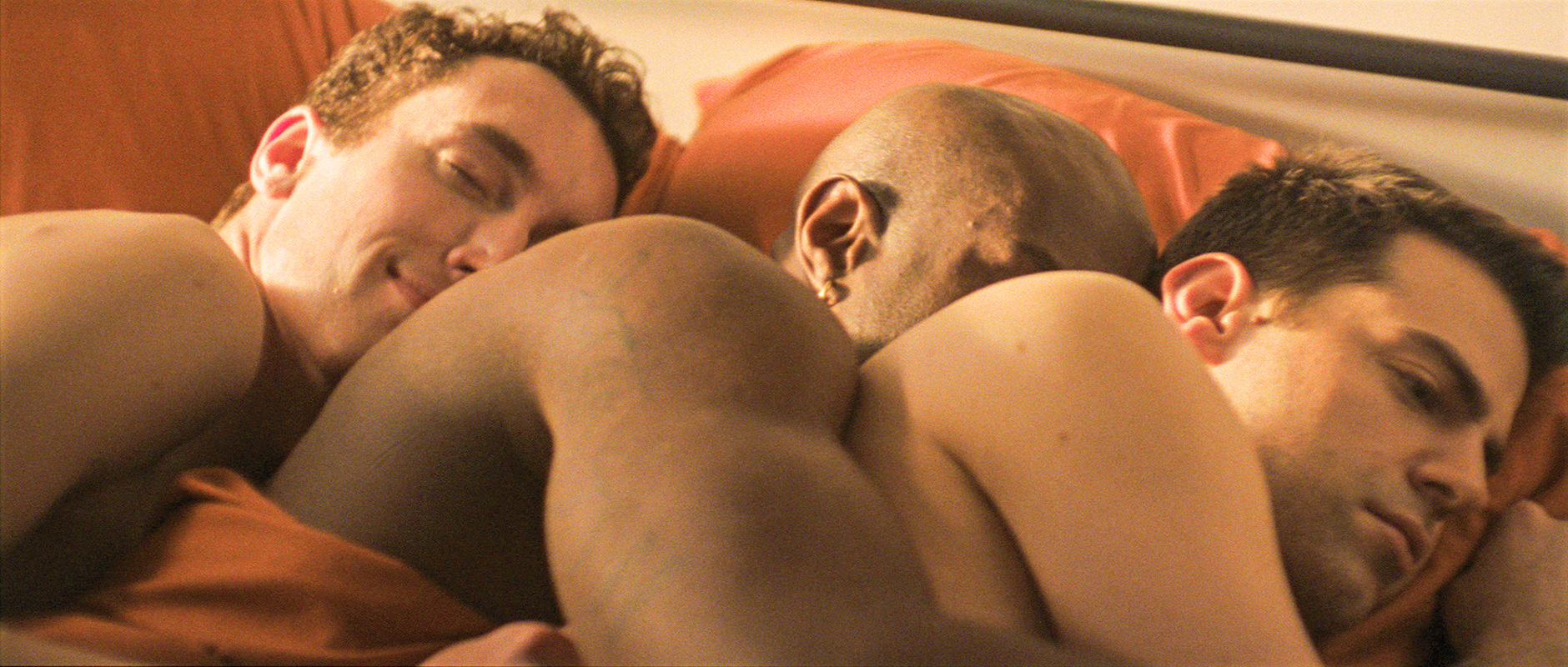
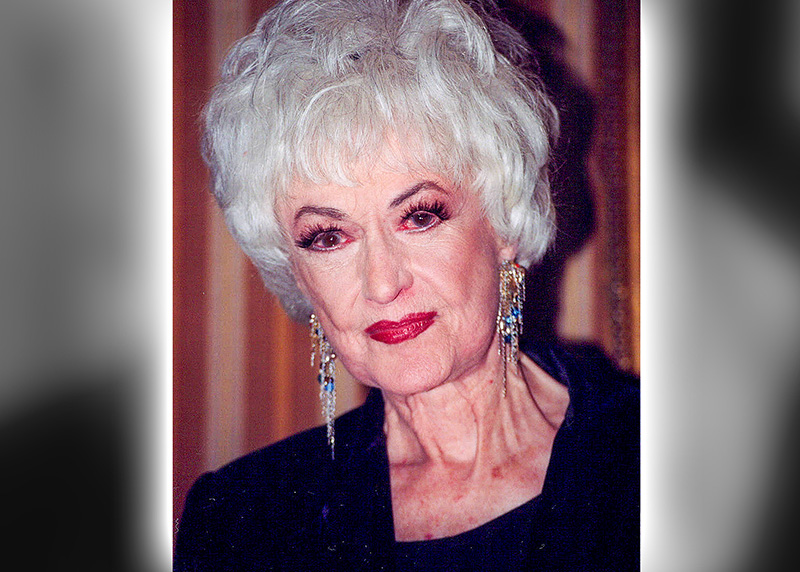
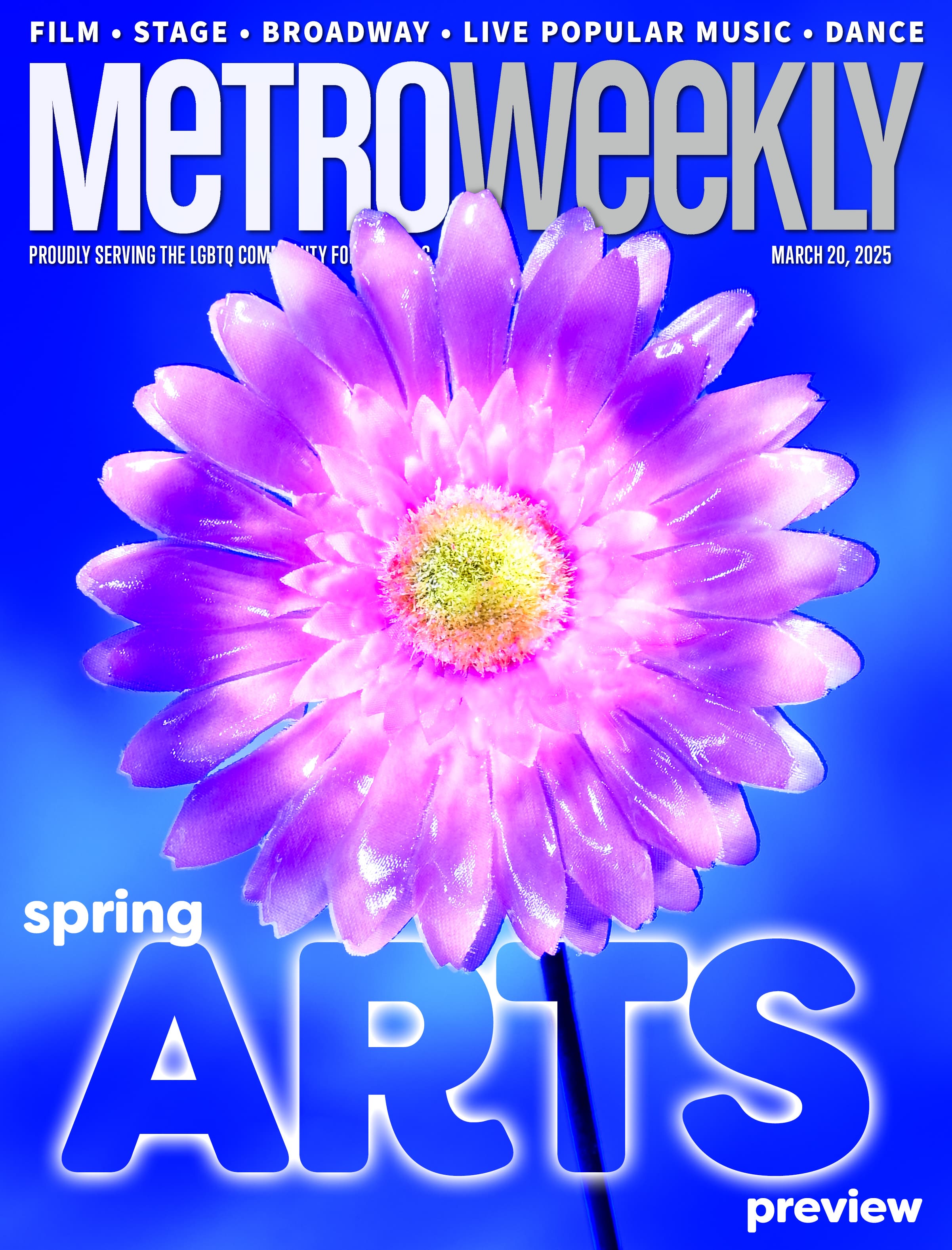












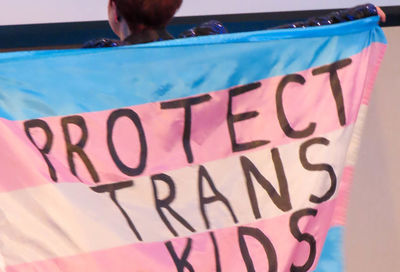
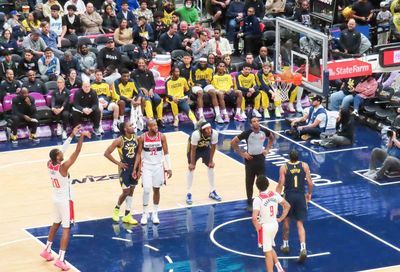
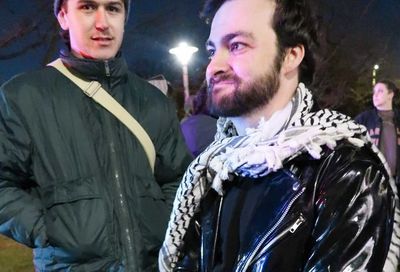
You must be logged in to post a comment.